After over 50 years in music, Dolly Parton is now a real rock star. The cherished country legend is finally putting out her long-awaited rock album called “Rockstar,” and she’s teaming up with some of the biggest names in music history to do it.

Dolly just released the latest single from her album, a cover of The Beatles’ timeless song “Let it Be.” Many have covered this beloved tune before, but this one is extra special because it features both living Beatles, Sirs Paul McCartney and Ringo Starr!
Few artists can bring together arguably the greatest band ever, but Dolly did it. Although Paul and Ringo have worked together occasionally, having them both on board is still a major achievement.

LONDON, ENGLAND – DECEMBER 12: Sir Ringo Starr and Sir Paul McCartney attend the Disney Original Documentary’s “If These Walls Could Sing” London Premiere at Abbey Road Studios on December 12, 2022 in London, England. (Photo by David M. Benett/Dave Benett/Getty Images for Disney+)
And if having two Beatles wasn’t enough, the song also includes Peter Frampton on guitar and Mick Fleetwood on drums, making it a truly star-studded recording.
The spiritual, gospel-inspired song is a great match for the 77-year-old country icon, and Dolly gives it her all in her performance — have a listen:
The song has received praise from both critics and fans of Dolly Parton and The Beatles.
One YouTube comment reads, “I got goosebumps from the first few words… by halfway through I was in tears! Thank you, Dolly, Paul, Ringo, and everyone involved in this incredible recording!”
Another comment says, “Great version of an iconic song by the legends themselves! A lively and powerful rendition. Thanks to all!!”
And another emotional comment reads, “No words… just tears… amazing… so much gratitude to these incredible legends for bringing this inspiring piece to a new generation. ‘Let it Be’ is exactly what this world needs right now.”

Blueee77 / Shutterstock.com
“Let it Be,” first released in 1970, remains one of the Beatles’ most cherished and inspiring songs. Although credited to Lennon-McCartney, Paul McCartney wrote it after dreaming about his mother, Mary Patricia McCartney, who passed away when he was 14.
Recorded during the band’s famous yet turbulent “Get Back” sessions, it served as the Beatles’ final single before their breakup in 1970. The song also lent its name to their last album, adding a bittersweet connection to the band’s farewell.
Dolly Parton’s album, Rockstar, is set to be released on November 17. She first hinted at making a rock album last year when she turned down her nomination to the Rock and Roll Hall of Fame. Dolly said she hadn’t “earned the right” to be inducted because she hadn’t made a rock & roll album yet.
“I hope the Rock & Roll Hall of Fame will understand and consider me again if I ever deserve it,” she wrote. “This has inspired me to finally make a rock ‘n’ roll album, which I’ve always wanted to do!” She also mentioned that her husband is a “total rock ‘n’ roll fan.”

Rockstar will have some new songs written by Dolly, but mostly it features covers of classic rock songs, often with the original artists joining in.
The track list includes:
- “Every Breath You Take” featuring Sting
- “Baby, I Love Your Way” with Peter Frampton
- “Heart of Glass” with Debbie Harry
- “Don’t Let the Sun Go Down on Me” with Elton John
- “Free Bird” with Lynyrd Skynyrd
Besides “Let It Be,” Dolly has released two other singles from the album: an original song called “World on Fire” and a cover of Queen’s “We Are the Champions”/“We Will Rock You,” which also promotes the 2024 Paris Olympics.
This Famous Hollywood Couple Endured the Loss of Their Son & Have Been Together for 73 Years – Inside Their Relationship

Their marriage began without romance, nearly unraveled from betrayal, and was saved by a cross-country move. After 73 years together, William Daniels and Bonnie Bartlett are still each other’s greatest love story.
William Daniels and Bonnie Bartlett’s relationship has defied the odds in an industry known for breakups. However, from their early days as ambitious students to being beloved fixtures in American pop culture, their journey has been anything but picture-perfect.
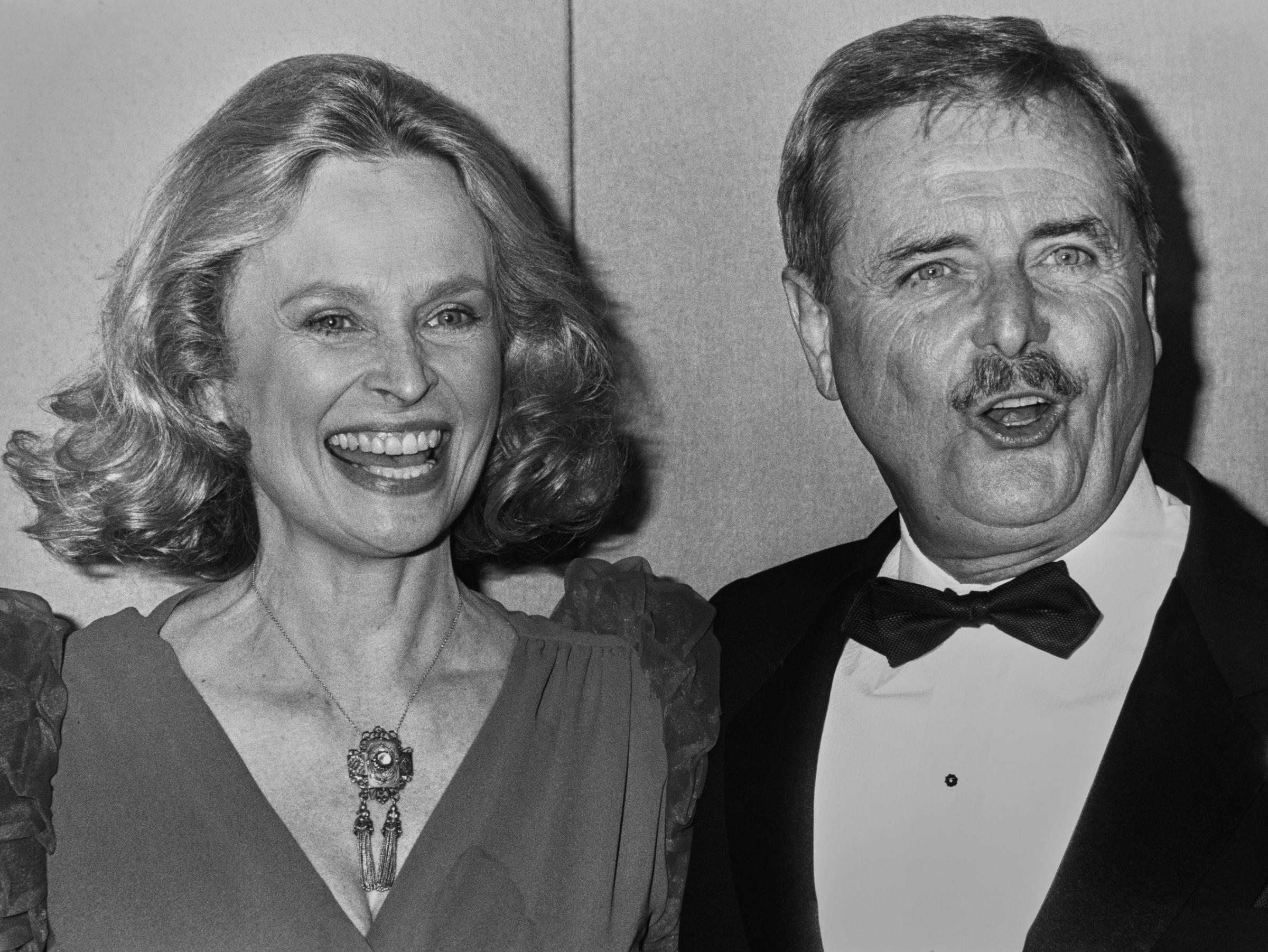
Bonnie Bartlett and William Daniels celebrating their win at the Emmy Awards in Pasadena, California, on September 21, 1986. | Source: Getty Images
Infidelity and the heartbreak of losing a child tested their relationship in ways that could have easily broken it. And yet, they held on. Here’s a look inside their extraordinary relationship and a love story that has endured for over seven decades.

William Daniels and Bonnie Bartlett sharing a kiss backstage at the Emmy Awards on September 21, 1986, in Pasadena, California. | Source: Getty Images
How a College Audition Sparked a Lifelong Love
Daniels and Bartlett have built a legacy in Hollywood that spans decades. He is best known for his roles as George Feeny in “Boy Meets World,” Dr. Craig in “St. Elsewhere,” and the voice of KITT in “Knight Rider.”
Bartlett, an acclaimed actress in her own right, earned accolades for her performances in shows like “St. Elsewhere” and “Little House on the Prairie.” However, their story began long before their fame.

William Daniels and Bonnie Bartlett photographed in 1986. | Source: Getty Images
The two first crossed paths at Northwestern University, where they studied acting. Daniels vividly recalled their first meeting. In a class where the teacher was casting a play, he remembered watching what he described as “dreadful” auditions.
Despite their awkward but charming first exchange, their connection quickly grew.
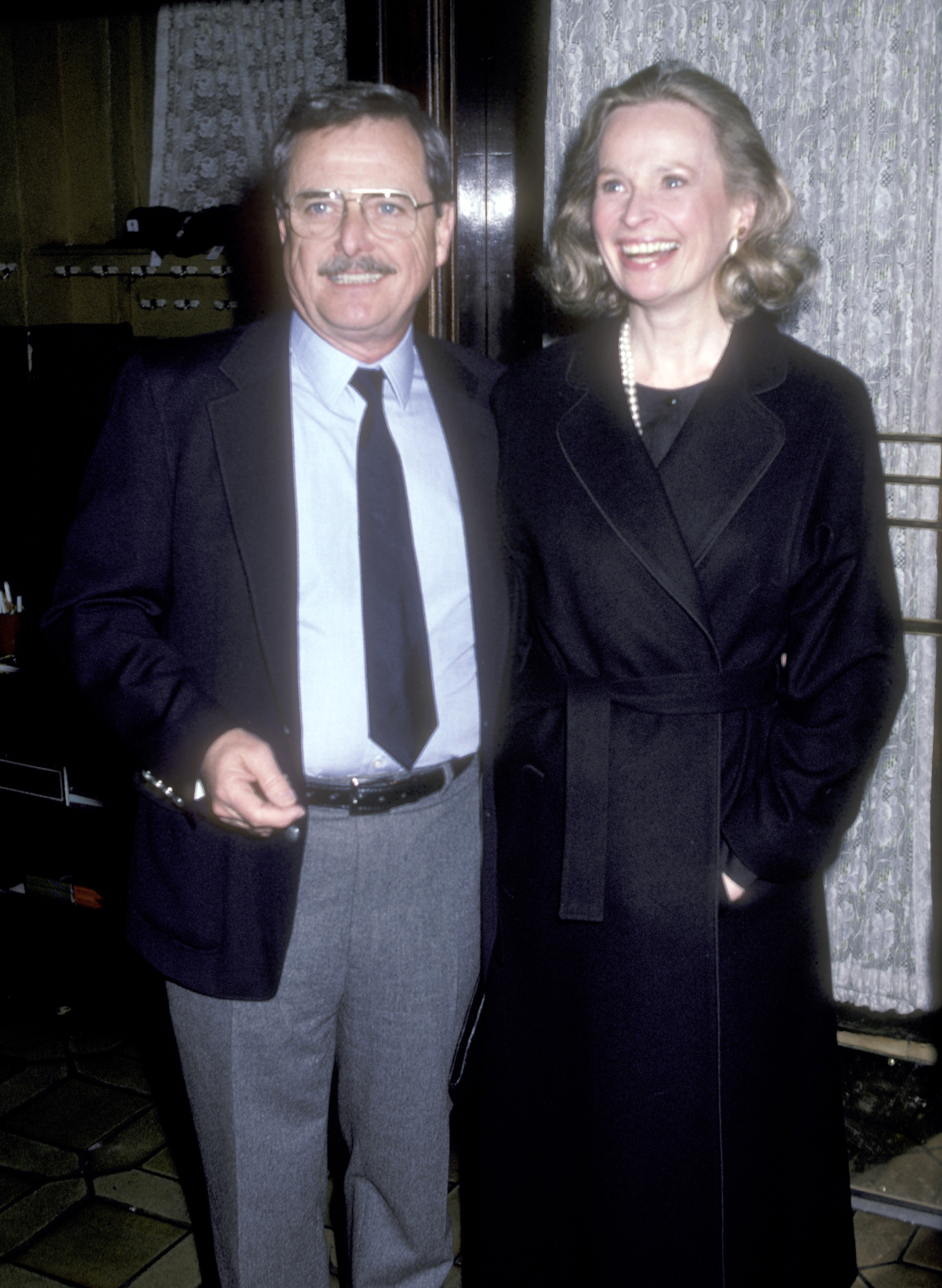
William Daniels and Bonnie Bartlett photographed at Sardi’s Restaurant in New York on April 13, 1986. | Source: Getty Images
Then, a voice from the back of the room that sounded like an actress caught his attention. He turned around and recalled seeing “this lovely blonde.”
After class, Daniels waited by the door for Bartlett. “I said, ‘How about a cup of coffee?’ And she said, ‘You’re too short.’ I said, ‘C’mon, have a cup of coffee.’ She said, ‘OK,'” he shared.
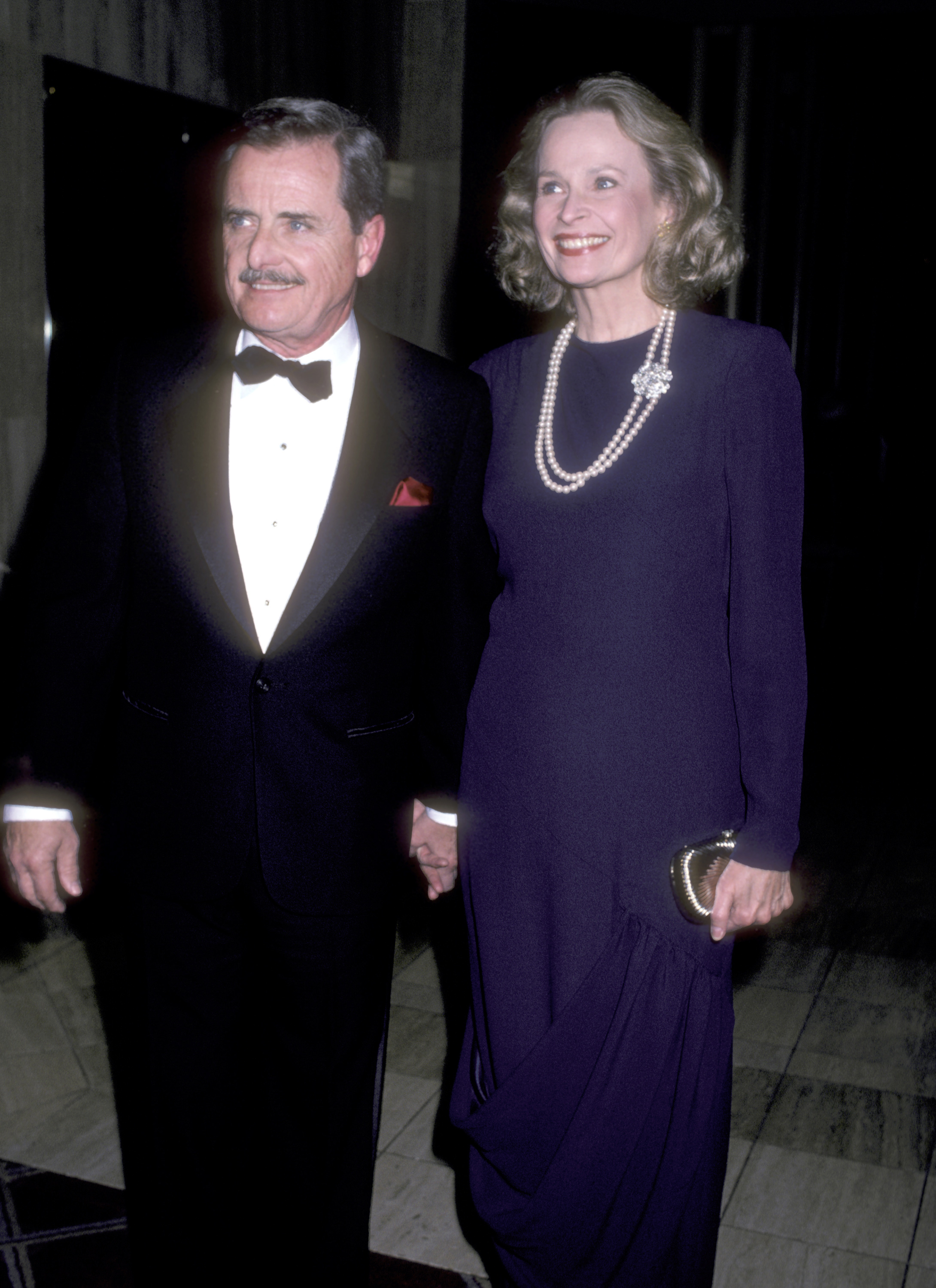
William Daniels and Bonnie Bartlett at the Jewish National Fund Annual Tree of Life Awards on December 11, 1986, in Los Angeles, California. | Source: Getty Images
Unbeknownst to Daniels at the time, Bartlett had already taken notice of him. “Turns out she heard I had been on Broadway,” he explained. “She had been following me around campus, I didn’t even know it.” Bartlett responded to his recollection, saying:
“True. I didn’t want to [be] a stalker. I didn’t want to interfere with his life and I never thought for a minute he’d be interested in me. So when I said, ‘You’re too short,’ I thought ‘Oh no, we’re wrong. You don’t want me.'”

William Daniels and Bonnie Bartlett filming “St. Elsewhere” in 1987. | Source: Getty Images
Despite their awkward but charming first exchange, their connection quickly grew. They discovered a shared passion for acting and mutual respect for their talent and ambition. “We both have the same goals. We both liked acting,” Bartlett said.

William Daniels and Bonnie Bartlett of “St. Elsewhere” photographed in 1987. | Source: Getty Images
“We both liked when the other one worked,” she continued. Daniels echoed her sentiment, adding, “There was never any jealousy between the two of us. We were happy when the other one was working.” That early understanding would become the foundation of a marriage that endured many trials and triumphs.

Bonnie Bartlett and William Daniels on the set of “St. Elsewhere” circa 1987. | Source: Getty Images
Weathering the Storm
Though Daniels and Bartlett’s marriage ultimately stood the test of time, its early years were marked by instability, painful betrayals, and emotional reckoning.
“That I’d spend my life with him, that never occurred to me. There was no plan. We were actors and trying to get work, and we liked being together,” Bartlett confessed.

Bonnie Bartlett and William Daniels at the NBC Affiliates Party on June 2, 1987, at Century Plaza Hotel in Los Angeles, California. | Source: Getty Images
The actress revealed in her memoir “Middle of the Rainbow” that she had an affair that lasted a few months in 1959.
Their decision to marry wasn’t rooted in romance and practicality. “And when we got married, I thought we just got married so that we could have sex really,” the actress shared.

Bonnie Bartlett and William Daniels at the “La Boheme” opening night performance on September 9, 1987, in Los Angeles, California. | Source: Getty Images
“We got married for the expediency of it. This was not a romantic thing. It was probably as much mental and sexual. It was just a meeting of the minds and a meeting of the bodies,” she added.
After marrying in 1951, Daniels credited his wife’s presence as vital to his success in school, admitting, “If I hadn’t met Bonnie, I don’t think I would have gotten through.”
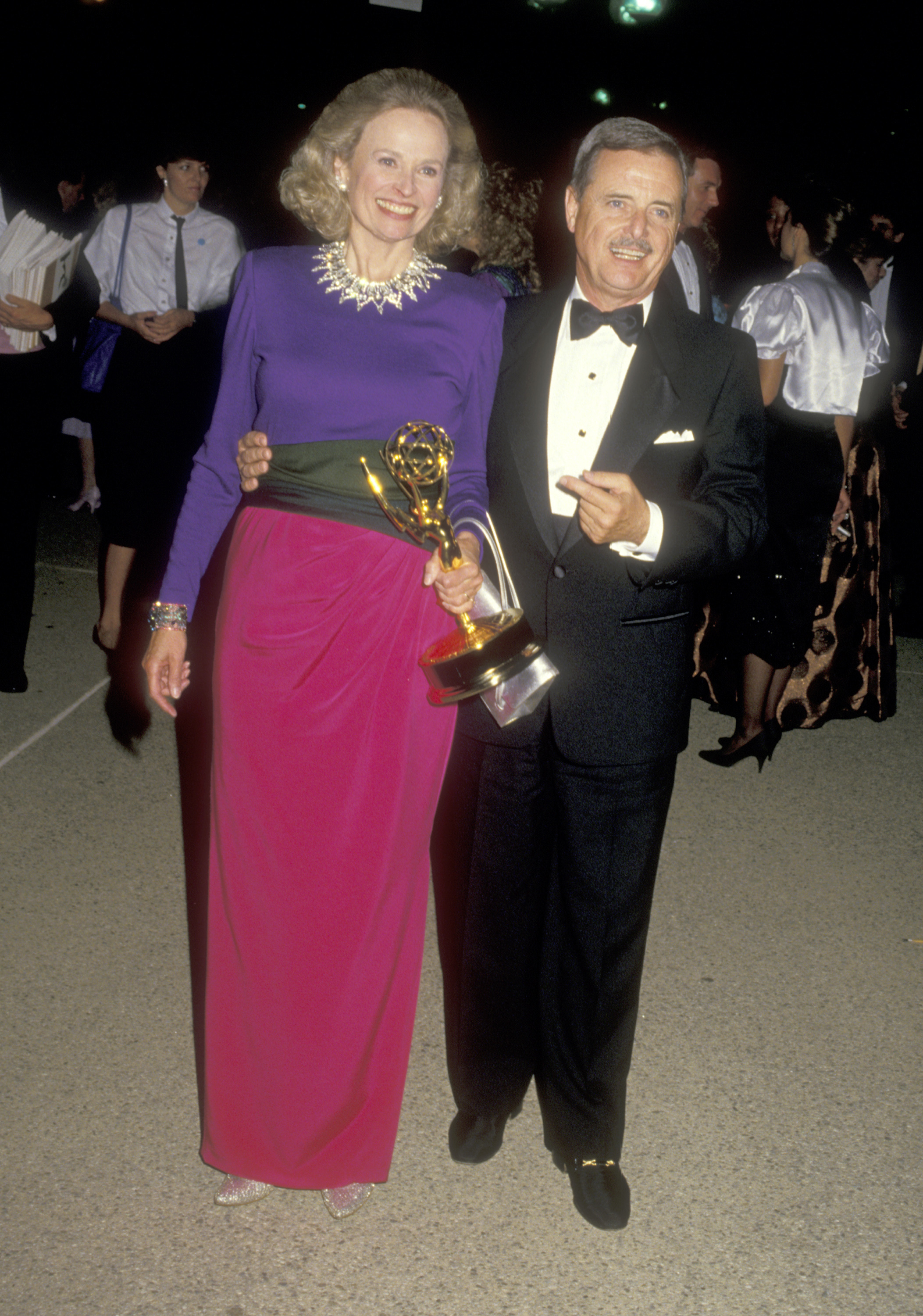
Bonnie Bartlett and William Daniels at the 39th Annual Primetime Emmy Awards on September 20, 1987, at Pasadena Civic Auditorium in California. | Source: Getty Images
However, the couple faced years of turmoil while living in New York. During that time, both were unfaithful. “I guess it was a little bit of an open marriage at first, but that was very painful. That didn’t work well. And it was a time when people were doing that.” Bartlett revealed.
She added, “It was at a time in New York when there was a lot of sex and a lot of people doing all kinds of things, you know — very free. But I don’t know if there was a lack of commitment a little bit, and that’s not good. So there was a lot of pain connected with any transgression, with any extramarital thing.”
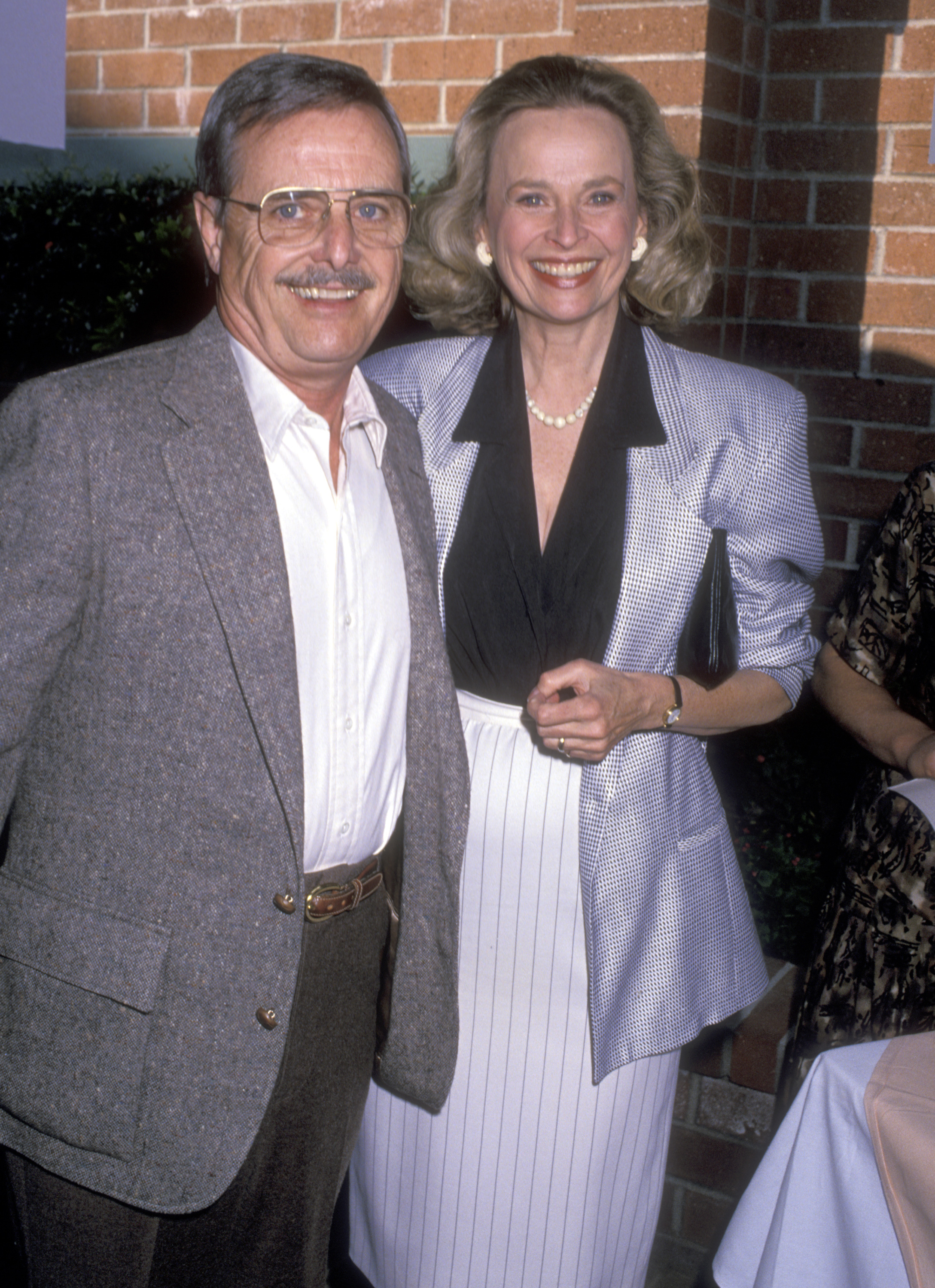
William Daniels and Bonnie Bartlett at the cocktail party to celebrate the 10th anniversary of Roe vs. Wade on January 22, 1989, in Hollywood, California. | Source: Getty Images
The actress revealed in her memoir “Middle of the Rainbow” that she had an affair that lasted a few months in 1959. However, Daniels’ affair with a New York-based producer in the early 1970s still left her wrecked. Despite the heartache, they stayed together.
Bartlett admitted, “I was always the one that would say to Bill, ‘I don’t think I want to be married to you anymore.’ And he’d say, ‘Oh, come on. You’re smitten with me. You’ve always been crazy about me.’ Every time I’ve questioned the relationship, he doesn’t take it seriously.”

Bonnie Bartlett and William Daniels circa 1989. | Source: Getty Images
Sadly, their struggles went beyond infidelity, as they also suffered a devastating loss.
Still, the emotional weight of their early years was undeniable. “It was very painful for the both of us. But it was something we had to go through because we never went through it. When we got together I was 18,” Bartlett said.

Bonnie Bartlett and William Daniels at the “Rambling Rose” premiere on September 19, 1991, at Mann National Theatre in Westwood, California. | Source: Getty Images
“Bill was my first boyfriend…We just had to go through all that and still, we loved each other very much and always have. [We] have always been there for each other,” she continued.
“That’s what matters — if you’re there for the person and help [them] along in a relationship, [have] respect for them and what they’re doing and being there for them…[You have to] be together on the other side,” the actress added.

Bonnie Bartlett and William Daniels before greeting fans at Fraunces Tavern Museum on July 3, 2015, in New York. | Source: Getty Images
Sadly, their struggles went beyond infidelity, as they also suffered the devastating loss of one of their sons. That tragedy and the emotional toll of their personal lives created a storm that might have ended many other relationships. But it didn’t end theirs.
Instead, the couple, who went on to welcome two boys, moved to Hollywood — and that shift marked a turning point. “Hollywood was really the saving grace for our marriage,” Bartlett explained.
She added, “Because once we got to Hollywood and we were here and living like a normal family and having weekends at home with our kids and doing things, it was [a] totally different story. Nobody wanted anything more than that.”
However, looking back years later, the actress saw those difficult times as necessary. “So much happens and you live — the good things, you hurt each other. We’ve hurt each other but you recover and you grow and you change and you adapt,” she revealed.
“You have to be able to adapt to the other person. You have to think of them first. It doesn’t happen overnight. It took us years to get to a real companionship marriage,” the Hollywood star added.
Lasting Love
After decades of trials, triumphs, and transformation, Daniels and Bartlett have emerged with an unshaken bond.
Reflecting on a marriage of over seven decades, the actress admitted, “I never expected it to be a marvelous, wonderful thing. I had no anticipation of that at all, and it just happened.”



Leave a Reply